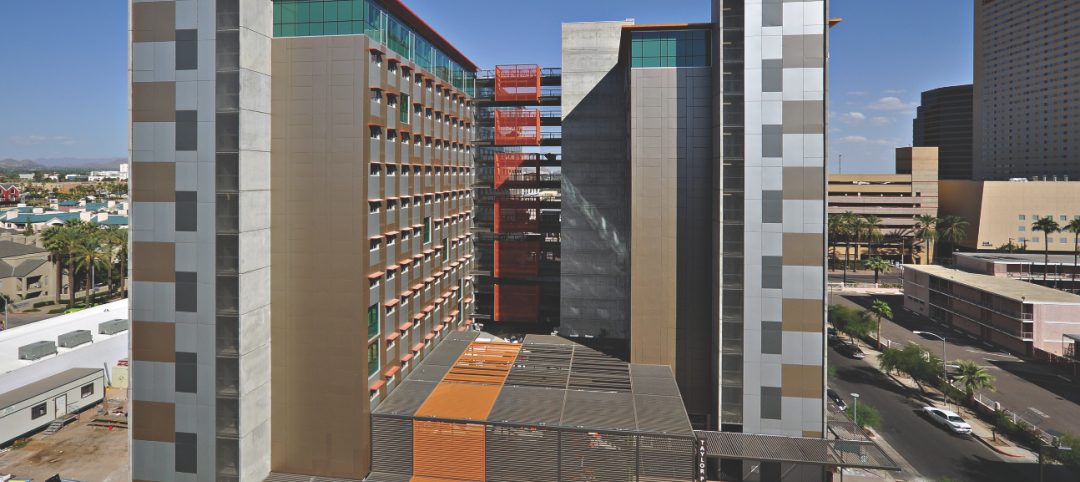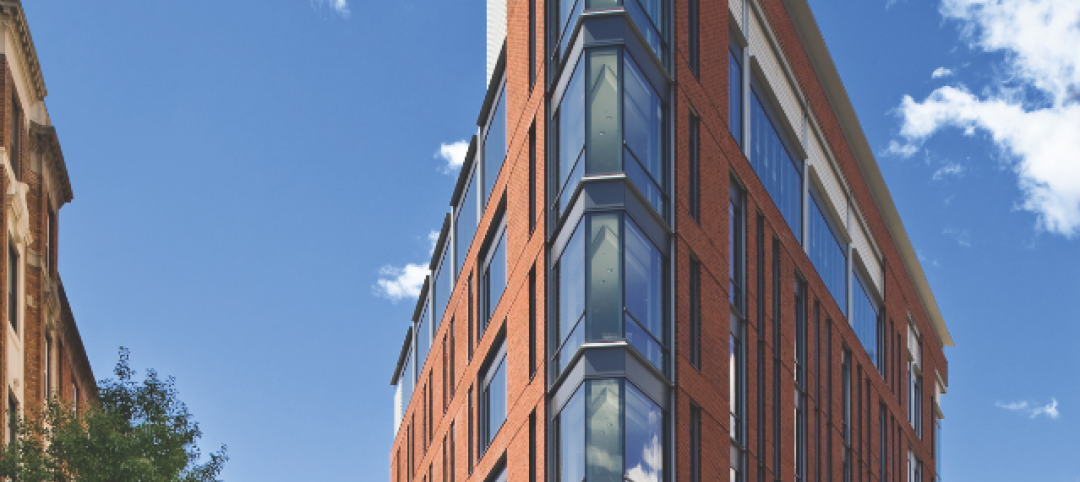About 63,000 adults in Washington D.C.—10% of the area’s adult population—lack high school diplomas. And these are the adults whom the Goodwill Excel Center, this market’s first adult charter high school, hopes to bring back to the educational fold.
Goodwill Industries of Greater Washington opened its first Excel Center in August inside a two-level, 21,500-sf basement space on G Street near the Old Executive Building. Goodwill received 2,055 applications for the 325 seats available. Three quarters of the students in its first class are women, and the ages of the students range from 26 to 39 years old. Seventy percent live in Wards 7 and 8, among D.C.’s poorest.
The D.C. school models itself after the first Excel Center in Indianapolis, which opened in 2010. There are now 11 Excel Centers in central Indiana, as well as in Memphis, Austin, Little Rock, Ark., and South Bend, Ind.
Catherine Meloy, CEO of Goodwill of Greater Washington, says her branch saw the need for an Excel Center after learning that many of the 2,000 applicants for jobs at D.C.’s Marriott Marquis hotel were turned away because their hadn’t graduated from high school. Several others who had a diploma weren’t hired because they couldn’t pass Marriott’s reading and math tests.
The Goodwill Excel Center operates five eight-week terms annually, and estimates it will take most students about two years to complete their education and earn a diploma. Meloy says that some of curricula are dual credited with a local college, and graduates will be credentialed in one of five industries: hospitality, security, healthcare, technology, or energy/utilities.
Beth Buffington, NCARB, LEED AP BD+C, Studio Principal with Little Community Group—which provided interior architecture, sustainable design, and brand communication and design services—recalls that the space Goodwill found for its first Excel Center left a lot to be desired.
“We referred to it as the ‘Minotaur Space,’ ” she says. “The carpets and walls were brown, some of the columns were sloping. It was a tired location. We wanted it to be more open and transparent.”
Little upgraded the artificial lighting, and managed to bring in some natural light, too. It made the finishes lighter, and injected “a hip, business look,” says Buffington, which opened up the walls and ceilings of the basement. Classrooms and learning areas support collaboration. And the layout allows teachers and mentors to be visible and accessible to the students at all times.
The school offers childcare services. And Little worked in graphics and biophilia that sup port Goodwill’s mission to the community.
The Goodwill Excel Center is tuition free, and city’s Office for School Education provides per-pupil financing, a percentage of which helped pay for the renovation. Goodwill Industries kicked in some money, and the group worked with a D.C.-based REIT to get a tenant allowance. The school also has corporate sponsors that include Capitol One and SunTrust.
Meloy says the goal is to have five Excel Centers in the D.C. area, and expects the second school to open by 2018. “The first was meant to be replicable so there would be branding and a consistent color tone,” she says.
Related Stories
| Sep 13, 2010
'A Model for the Entire Industry'
How a university and its Building Team forged a relationship with 'the toughest building authority in the country' to bring a replacement hospital in early and under budget.
| Sep 13, 2010
Committed to the Core
How a forward-looking city government, a growth-minded university, a developer with vision, and a determined Building Team are breathing life into downtown Phoenix.
| Sep 13, 2010
College Sets Its Sights on a Difficult Site
Looking to expand within Boston's famed Longwood Medical Area, the Massachusetts College of Pharmacy and Health Sciences took a chance on an awkward site with a prestigious address and vocal neighbors.










